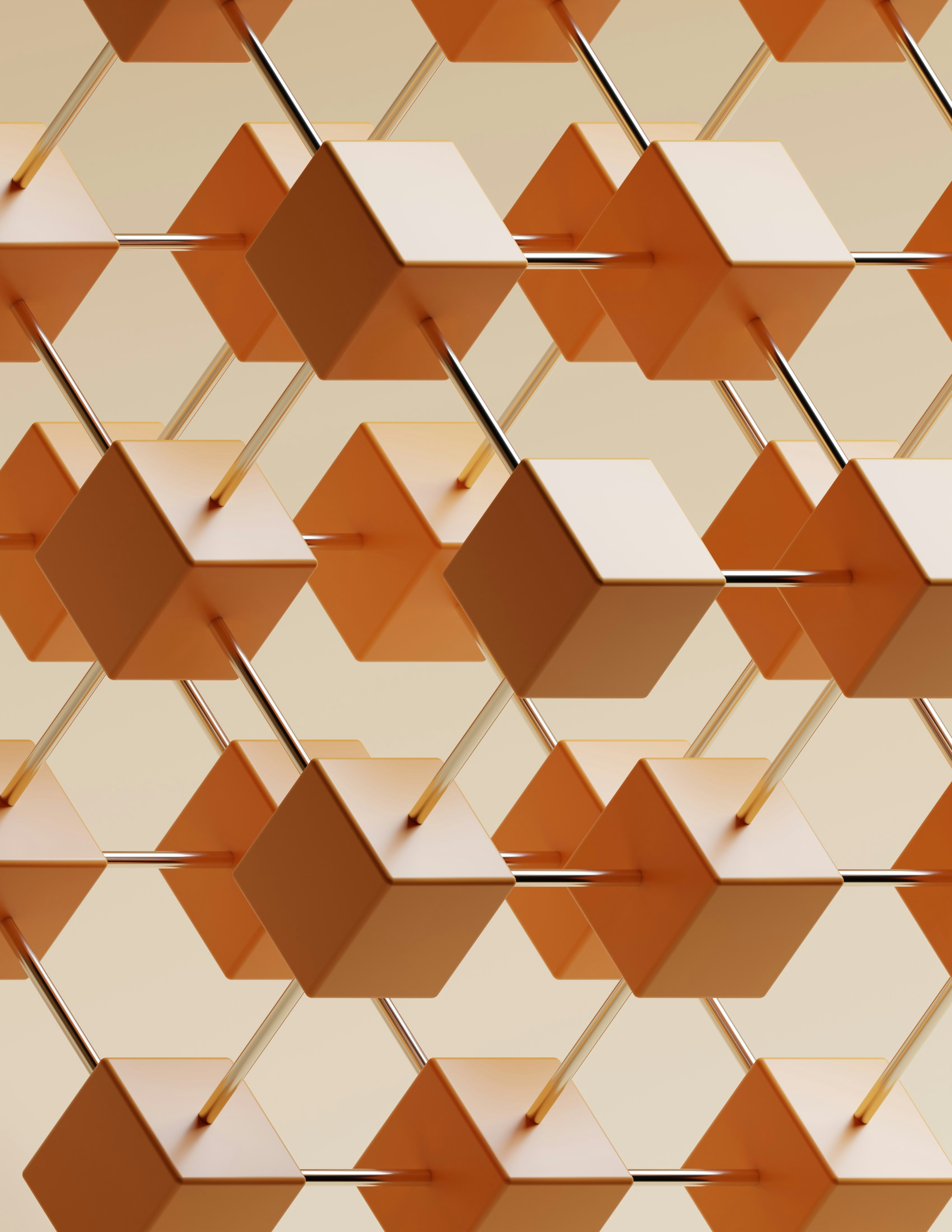Whitepaper: A Decentralized Collaborative Platform for Designers
The Duku creator co-lab DAO is a decentralized platform that leverages blockchain technology and the principles of a DAO to create a collaborative ecosystem for designers from various disciplines, including Graphic design, UI/UX design, product design, architecture, and more. The Duku Creator co-lab aims to revolutionize the design industry by providing a transparent, democratic, and decentralized platform for designers to collaborate, showcase their work, and earn rewards.
Features
Decentralized Collaboration: The Duku Creator co-lab (DAO) facilitates decentralized collaboration among designers through smart contracts and decentralized governance. Designers can join forces, share ideas, and work together on projects without the need for intermediaries or centralized authorities.
Project Marketplace: The platform hosts a marketplace where clients can post design projects and requirements. Designers can bid on these projects, forming teams or working individually, and leveraging the collective expertise of the DAO community.
Peer Review and Quality Control: Duku Creator co-lab implements a peer-review system where completed design projects are evaluated by the community. This ensures high-quality standards and provides valuable feedback to designers, fostering continuous improvement.
Tokenized Rewards: The Duku Creator co-lab has its own native cryptocurrency token, which is used to incentivize and reward designers for their contributions. Designers earn tokens based on the quality and impact of their work, as determined by the peer-review process and community governance.
Decentralized Governance: The Duku Creator co-lab operates through decentralized governance, where token holders can participate in decision-making processes, such as setting platform rules, determining reward structures, and voting on proposals for platform improvements or new features.
Portfolio and Reputation Management: Designers can build and showcase their portfolios on the Creator co-lab DAO platform, establishing their reputation within the community. The transparent and decentralized nature of the platform ensures that designers' work and achievements are accurately represented and rewarded.
Educational Resources and Mentorship: The Creator co-lab DAO can facilitate educational resources, tutorials, and mentorship programs, enabling designers to continually upskill and learn from industry experts within the community.
Crypto needs less investors and more builders
Revenue Model
The Duku Creator co-lab DAO can generate revenue through various streams, including:
Platform fees for project listings and successful project completions
Subscription-based premium features or services
Sponsorships and partnerships with design-related companies or organizations
Trading and transaction fees associated with the native cryptocurrency token
By leveraging the power of decentralization, transparency, and community governance, the Creator co-lab DAO aims to create a fair, inclusive, and rewarding ecosystem for designers worldwide, fostering innovation and enabling designers to thrive in a collaborative and decentralized environment.
How is it different from traditional agency?
The Design DAO concept differs from a traditional design agency in several key ways:
Decentralized Structure: Unlike a traditional agency with a hierarchical structure and centralized decision-making, the Duku Creator co-lab DAO operates as a decentralized autonomous organization (DAO). This means that there is no central authority or management layer; instead, governance and decision-making are distributed among the DAO members (designers) through a decentralized voting system enabled by blockchain technology and smart contracts.
Ownership and Control: In a traditional agency, ownership and control typically lie with a small group of partners or shareholders. In contrast, the Duku Creator co-lab DAO is collectively owned and controlled by its members (designers) through their ownership of the DAO's native cryptocurrency tokens. Token holders have voting rights and can participate in the DAO's governance, shaping its rules, policies, and future development.
Transparency and Accountability: The Duku Creator co-lab leverages blockchain technology, which ensures transparency and immutability of transactions, project records, and governance processes. This level of transparency and accountability is often lacking in traditional agencies, where decision-making and financial operations may not be fully visible to all stakeholders.
Collaborative and Meritocratic: The Duku Creator co-lab fosters a truly collaborative environment where designers can join forces, share ideas, and work together on projects without the need for intermediaries or centralized management. Rewards and recognition are based on meritocratic principles, where designers are compensated and earn reputation based on the quality of their work and contributions, as evaluated by the community through peer review processes.
Decentralized Project Sourcing: Instead of relying on a centralized sales team or account managers, the Duku Creator co-lab hosts a decentralized project marketplace where clients can directly post their design requirements, and designers can bid on and collaborate on these projects, forming teams organically based on their skills and interests.
Global and Borderless: The Duku Creator co-lab is a global, borderless platform that allows designers from anywhere in the world to participate, collaborate, and earn rewards, without being constrained by geographical boundaries or local market limitations.
Continuous Education and Upskilling: The Duku Creator co-lab can facilitate educational resources, tutorials, and mentorship programs, enabling designers to continually upskill and learn from industry experts within the community, fostering a culture of continuous learning and professional growth.
While traditional design agencies operate within a centralized structure and hierarchy, the Duku Creator co-lab embraces the principles of decentralization, transparency, and collective ownership, creating a more democratic, collaborative, and meritocratic environment for designers to thrive in the digital age.
Payment settlement between Clients and Designers
Project Listing and Payment Escrow:
When a client lists a design project on theDuku Creator co-lab marketplace, they are required to deposit the project budget in Ethereum (ETH) or a stablecoin (e.g., USDC) into a smart contract escrow on the Ethereum mainnet.
This escrow contract holds the client's funds securely until the project is completed and accepted.
Designer Assignment and Payment Allocation:
Once designers or teams bid on the project and are selected, the project budget is allocated to separate payment streams for each designer or team member, based on their agreed-upon share of the project.
These payment allocations are recorded and managed by the smart contract on the Ethereum mainnet.
Project Execution on Polygon:
To minimize transaction costs and improve efficiency, the actual design work and collaboration can take place on the Polygon sidechain (a Layer 2 scaling solution for Ethereum).
Designers can interact with the Design DAO's dApp (decentralized application) on Polygon, where they can access project details, share files, and communicate with team members.
Peer Review and Quality Assurance:
Upon project completion, the work is submitted for peer review on the Polygon sidechain.
The peer review committee, selected through a decentralized voting mechanism on Polygon, evaluates the quality of the work and provides feedback.
Payment Release and Settlement:
If the project meets the required quality standards, the peer review committee triggers the payment release smart contract on the Ethereum mainnet.
The client's escrowed funds are then automatically distributed to the respective designers or team members, based on their allocated payment streams.
Designers can choose to receive their payments in ETH, stablecoins (e.g., USDC), or the Design DAO's native token on the Polygon network.
Token Bridge and Fiat Off-Ramp:
If designers prefer to receive payments in fiat currencies (e.g., USD, EUR), they can utilize a token bridge to transfer their Polygon-based tokens to the Ethereum mainnet.
From there, they can use decentralized exchanges (DEXs) or fiat off-ramp services integrated with the Design DAO to convert their tokens or Ethereum-based assets into fiat currencies.
By leveraging Polygon for the design collaboration and peer review processes, and using the Ethereum mainnet for secure payment escrow and settlement, the Design DAO can provide a cost-effective, secure, and transparent payment system for its clients and designers. This approach combines the security and decentralization of Ethereum with the scalability and low transaction costs of Polygon, ensuring an efficient and seamless payment experience within the DAO ecosystem.
“ Duku creator co-lab has been a game-changer for our design needs. The transparent, decentralized platform allows us to access a global pool of top talent and collaborate efficiently, while the blockchain-based system ensures fair compensation and accountability."
Harshit Chachra
Business Development & Growth Head, onramp.money
Conclusion
The Duku Creator co-lab represents a groundbreaking shift in the design industry by leveraging decentralization, transparency, and collective ownership enabled by blockchain technology. Through its decentralized collaboration platform, tokenized incentives, and community-driven governance, the DAO fosters a fair, inclusive, and rewarding ecosystem for designers globally.
By empowering designers with control over their careers, seamless cross-border collaboration, and meritocratic compensation, the Duku Creator co-lab positions itself at the forefront of digital transformation in the design world. It offers a sustainable and forward-thinking solution that addresses the limitations of traditional models, unlocking new levels of creativity, innovation, and professional growth.
Join us in shaping the future of design through the power of decentralization and collaborative innovation within the Duku Creator co-la ecosystem.












